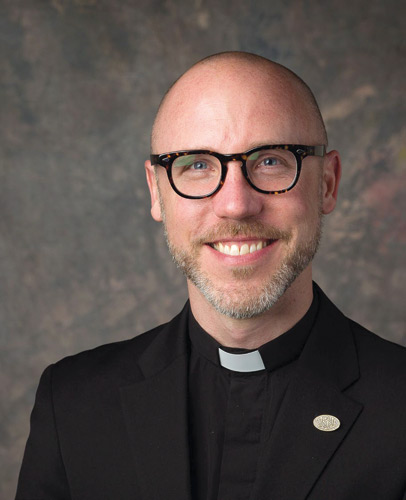We live in an age of secularization. That might sound scary, but it also gives us new possibilities. What are possible losses, and what are opportunities for the Church?

The second one is secularization, which is a historical process that is partly connected to the separation of Church and State. Secularization tracks this decline of religious belief and of practice that we see all around us today – people everywhere are taking up all kinds of new spiritual and religious practices and putting down old ones.
It’s the third sense, though, that is the most interesting, because it’s here that the Church really should start to engage, imagine, and be creative: in this third type the secular describes a way of experiencing the world as a place full of plurality, fragility, and options. Looking at secularity in this way means, for example, that secularity is not an inherent opponent of any particular religion. Instead, describing ours as a ‘secular world’ means that it’s not only a space of rivalry and competition and negotiation between world views and life experiences and traditions, but a world of dialogue and conversation between people with different belief systems. And I think the deeper that we Christians accept secularity in this third sense the more we can see that a secular world is not our enemy, that the people who compose it are not our enemies but potential collaborators, people who may never fully agree with us, but with whom we can converse, collaborate, and celebrate.
That kind of dialogue might be scary to some people. Is it still a struggle for many Christians to accept that the Church has lost its prominent position in society?
I think there can be a real sense of sadness, of loss… But that does not mean that there is nothing in front of us now. The more we are occupied with what is no longer, the less we can pay attention to what is. As Tennyson wrote:
“Though much is taken, much abides;
and though we are not now that strength which in old days
moved earth and heaven, that which we are, we are…”
I think Tennyson’s words describe much of what it is to be a Christian after Christendom. The key to taking up such a task is to remember that Jesus is still at work in the world, as the Gospel of John reminds us. And if Jesus is still present here in this world, we fail in our responsibilities if we fail to seek and to find and to join him wherever he labours now. Christians have no reason for nostalgia; the world is not our enemy. It remains what it has always been: the place where we find the Lord.
Many ecclesial movements have received charisms that are exactly made for living out the faith in today’s world. In a nutshell, how would you describe the role of the Focolare Movement?
What Focolare members seek most fundamentally is unity: Jesus in the midst. And the way you pursue unity is by embracing Jesus Forsaken [see Mt. 27: 46 when Jesus cries out on the cross, ‘My God, my God, why have you forsaken me?’], by loving suffering; being unafraid of it. I think that is what it means to be a member of Focolare. It means to seek unity in all things, particularly when we encounter suffering. In my time with you all it struck me very strongly that, when you encounter a moment that could become an occasion for disunity or division, often instead it became an occasion to move closer, to see if a space for conversation, love, encounter, dialogue could be made.
That can be very difficult because, despite our best efforts as human beings, unity does not always come when we call. One of the things I admire about Focolare, is that you offer yourselves as gifts anyway – you keep trying despite there being no guarantee of success. This is a great gift, a gift that our world, and the Church needs. Yours is not a unity that looks like conformity or uniformity, but a unity that looks like friendship, mutual listening, celebration, and lamenting with one another. It is much more companionship than intellectual adherence.
READ the full version here>>>[New City magazine November 2023, p. 4-6.]
First published in Living City US

